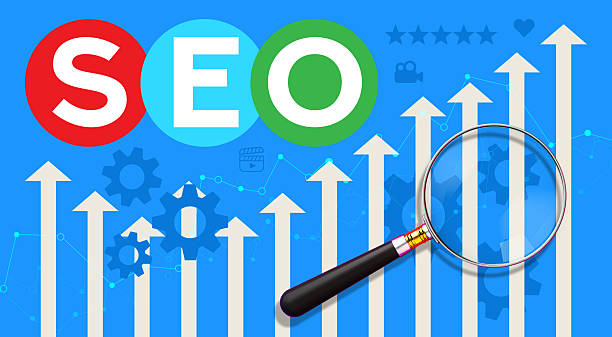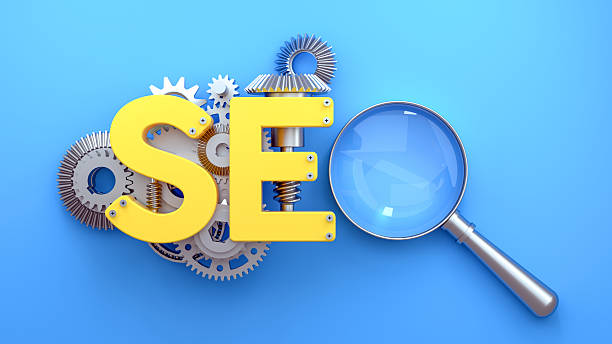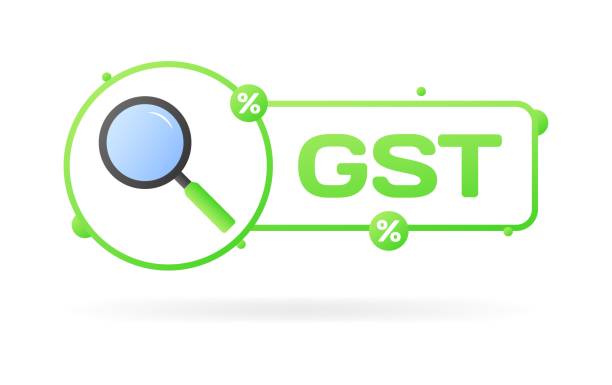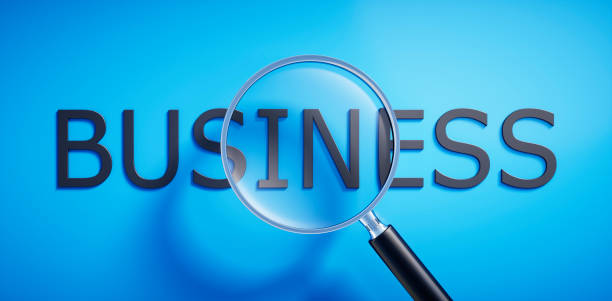What is Off-Page SEO and Why is it Important?

Off-Page SEO, also known as off-site optimization, refers to all activities performed outside of your website that aim to improve its ranking in search engine results.
These activities primarily focus on the #website_authority and #trust that search engines place in your content.
Unlike On-Page SEO, which deals with the structure and content within the site, Off-Page SEO relies on signals sent to your site from other sources.
The most important and well-known aspect of Off-Page SEO is building high-quality backlinks.
Backlinks act as votes of confidence from other websites for your content; the more numerous and higher the quality of these backlinks, the more credible and authoritative search engines will consider your site.
This ultimately leads to improved rankings in SERP (Search Engine Results Pages) and increased organic traffic.
The importance of Off-Page SEO is so significant that without it, even with the best On-Page SEO and unparalleled content, achieving high rankings in competition with powerful sites will be almost impossible.
This educational section provides the foundation for understanding this vital concept and clarifies its role in a comprehensive SEO strategy.
This aspect of SEO is especially crucial for websites operating in a competitive environment, as competing for popular keywords will be very difficult without a strong and natural backlink profile.
In addition to backlinks, other factors such as social media signals, brand mentions, and referral traffic also play a role in Off-Page SEO, all of which contribute to increasing your website’s credibility and visibility online.
Overall, Off-Page SEO is an inseparable element of any successful SEO strategy that must be addressed continuously and systematically to achieve sustainable results and increase domain authority.
Without sufficient focus on this section, your efforts in On-Page SEO may not lead to desired results.
Did you know that 85% of customers check your company’s website before any interaction?
With Rasaweb, build a corporate website that deserves your trust.
✅ Increase customer credibility and trust
✅ Attract high-quality leads
⚡ Get free website design consultation
Important Types and Methods of Off-Page SEO

Off-Page SEO is not limited to backlinks; rather, it encompasses a wide range of activities, all carried out with the aim of increasing your site’s authority and visibility online.
In this section, we will #explain and #guide you through the important types of Off-Page SEO and its practical methods.
The first and most important part is Link Building, which involves the process of acquiring links from other websites to your site.
These links can be dofollow or nofollow, with dofollow links having greater SEO value.
There are various link-building methods, including content link building, guest blogging, broken link building, and using reputable directories.
Each of these methods requires a specific strategy and approach to achieve the best results in Off-Page SEO.
The second type is Social Signals.
Although social media links are usually nofollow and do not directly impact site rankings, strong activity on platforms like Twitter, Facebook, LinkedIn, and Instagram can lead to increased brand awareness, traffic generation, and ultimately, positive signals for search engines.
Content sharing and user engagement on social networks can indirectly boost your site’s authority.
The third section is Brand Mentions.
Even if your brand or website name is mentioned on other websites without a link, search engines can detect these mentions and consider them a positive signal.
This is particularly true for news sites and news articles that mention your brand name without linking.
The fourth type is Local SEO, which is especially important for physical businesses.
Building profiles in local directories, getting positive customer reviews, and actively participating in Google My Business are among the important activities in this area that significantly help improve local Off-Page SEO.
Finally, we must mention Influencer Marketing, where by collaborating with influential individuals or websites in your industry, you can achieve increased visibility and acquire high-quality backlinks.
Choosing the appropriate method depends on your business type, budget, and goals, and usually, a combination of these methods will yield the best results in Off-Page SEO.
Building High-Quality Backlinks: The Cornerstone of Off-Page SEO

Backlinks are undoubtedly the beating heart of Off-Page SEO, and their quality directly impacts your website’s authority and ranking.
In this specialized and guidance section, we delve into building high-quality backlinks.
The era of buying worthless and irrelevant backlinks is over; search engines, especially Google, have become much smarter and can easily identify spammy and unnatural links.
The main goal in link building is to acquire links from reputable websites, relevant to your industry, and with high authority (such as high DR or DA).
One of the best methods is producing valuable and shareable content.
When your content is so excellent and useful that other websites naturally link to it, these backlinks have very high value in Google’s eyes.
This can include in-depth analytical articles, engaging infographics, research reports, or useful tools.
Another method is Guest Posting on relevant and reputable blogs.
In this method, you write a high-quality article for another website and, in return, receive one or two backlinks to your site.
The key point is that the host blog must be relevant to your field of work and have a common audience for this link to be beneficial for your Off-Page SEO.
Broken Link Building is also a smart strategy.
In this method, you look for broken links on reputable websites and then offer the website owner to replace that broken link with your content.
This is a win-win situation; they fix their link, and you get a quality backlink.
Link building through reputable directories and resource lists, provided they are chosen correctly and selectively, can also be effective.
Directories like Google My Business for local SEO, or specific industry directories, can be valuable.
On the other hand, undesirable methods such as bulk buying backlinks from spam sites or participating in PBNs (Private Blog Networks) should be strictly avoided; as these activities can lead to penalties from Google and loss of ranking.
Continuously monitoring and analyzing backlink profiles to ensure their quality and naturalness is an essential part of an Off-Page SEO strategy.
Every backlink pointing to your site must be logical and relevant to transfer the necessary power and authority to your domain.
This educational approach helps you build your link-building strategies based on quality and sustainability.
| Criterion | Description | Importance for Off-Page SEO |
|---|---|---|
| Domain Authority (DR/DA) | Overall strength and credibility of the linking domain (Ahrefs/Moz metric) | The higher it is, the more authority it transfers. |
| Topical Relevance | The degree of topical relevance of the linking site to your site | Links from relevant sites are more natural and powerful. |
| Link Placement | Link position on the page (content, footer, sidebar) | In-content (Contextual) links yield the best results. |
| Anchor Text | The clickable text of the link | Must be relevant and diverse; avoid spammy keywords. |
| Traffic and Quality of Linking Site | The linking site should have real traffic and active visitors. | Links from high-traffic and reputable sites have more value. |
Backlink Evaluation Criteria and Related Tools

To ensure the effectiveness of your Off-Page SEO strategy, continuous analysis and evaluation of backlinks are of high importance.
This evaluation helps you identify high-quality backlinks and avoid toxic links that can harm your site’s ranking.
In this analytical section, we will discuss the most important evaluation criteria and specialized tools for this purpose.
One of the most important metrics is Domain Authority (DA) and Page Authority (PA), developed by Moz.
These metrics are scored from 0 to 100, and the higher the number, the greater the authority of the domain or page in question.
Another similar metric provided by Ahrefs is Domain Rating (DR) and URL Rating (UR), which function similarly and are very useful for measuring the strength of backlinks.
Furthermore, the topical relevance of the linking website to your site is highly important.
A link from a relevant, industry-related website has much greater value than a link from a completely unrelated site, even if it has high authority.
Trust Flow and Citation Flow from Majestic are other important metrics that indicate, respectively, the trustworthiness and influence of a site.
Leading tools in this field include Ahrefs, Moz Pro, and SEMrush.
These tools provide extensive capabilities for examining your own and your competitors’ backlink profiles.
Using these tools, you can:
- View the total number of backlinks and referring domains.
- Evaluate backlink quality based on various metrics (DR, DA, Spam Score).
- Examine the anchor texts used and ensure their diversity.
- Identify broken links and discover new link-building opportunities.
- Identify toxic and spammy links and disavow them through the Google Disavow Tool to prevent harm to your Off-Page SEO.
Regular evaluation of your backlink profile is a crucial aspect of any successful Off-Page SEO strategy.
This helps you ensure the health and strength of your link profile at all times and enables you to make informed decisions to improve your site’s ranking.
This guidance section helps you take a data-driven approach to link building.
Are you dissatisfied with the low conversion rate of visitors to customers on your e-commerce site?
With professional e-commerce website design by Rasaweb, solve this problem permanently!
✅ Significantly increase visitor-to-customer conversion rate
✅ Create an excellent user experience and build customer trust
⚡ Get free consultation now
The Role of Social Media in Modern Off-Page SEO

In the current SEO landscape, the role of social media in Off-Page SEO, though indirect, is highly significant.
In this explanatory and engaging section, we examine this role.
Contrary to popular belief, sharing content on social media does not directly translate to acquiring high-SEO-value backlinks, as most social media links are “nofollow” and do not pass direct “Link Juice.”
However, their indirect impact on Off-Page SEO is undeniable.
Firstly, strong activity on social media leads to increased visibility for your content and brand.
When your content is shared on Facebook, Twitter, LinkedIn, or Instagram and receives high engagement (likes, comments, reshares), more people become familiar with it.
This increased visibility can naturally lead to acquiring natural backlinks from bloggers, journalists, or other websites who find your content valuable and decide to link to it.
These types of backlinks are highly valuable to search engines because they are created organically and based on content quality.
Secondly, social networks can drive significant Referral Traffic to your site.
Increased traffic from various sources signals to search engines that your site is popular and useful.
If this traffic is directed to pages with in-depth and educational content and users spend a lot of time on your site, this can help reduce the Bounce Rate and increase Dwell Time, which are positive ranking factors.
Thirdly, Brand Mentions on social media, even without direct links, act as positive signals for search engines.
Google is increasingly becoming smarter at recognizing entities and their connections to brands.
The more your brand name is mentioned in online conversations and social platforms, the greater your brand’s authority and recognition in the eyes of search engines.
This is especially important in the context of Off-Page SEO and building overall domain authority.
For example, if a thought-provoking content campaign generates a lot of discussions around your content on Twitter, this can add to your credibility.
Finally, customer service and audience engagement on social media can help increase customer satisfaction and build a loyal online community.
These positive interactions can lead to positive reviews and feedback, which in turn play a role in local SEO and overall site ranking.
Therefore, although social networks do not necessarily pass “link juice” directly, they play a vital role in strengthening Off-Page SEO by increasing visibility, traffic, brand mentions, and user trust.
Brand Mentions and Positive Off-Site Signals

Beyond backlinks, another key aspect of Off-Page SEO is Brand Mentions.
In this explanatory and news-related section, we discuss the importance of these indirect signals.
A brand mention refers to any reference to your brand name, website, products, or services in the online space, without necessarily having a direct link to your site.
Search engines, especially Google, are becoming increasingly smarter at understanding “Entity Authority.”
This means they pay attention not only to links but also to the level of popularity and recognition a brand has in the digital sphere.
When your brand name is mentioned in news articles, blogs, forums, social media platforms, podcasts, and even videos, this is considered a positive signal for search engines.
These mentions indicate that your brand is active and recognized, and people are talking about it.
The higher the quantity and quality of these mentions, the more authoritative and reputable search engines will consider your brand.
This indirect authority significantly contributes to the overall improvement of Off-Page SEO and the ranking of keywords related to your brand.
One of the most important types of brand mentions is NAP (Name, Address, Phone Number) mentions for local businesses.
Ensuring that your business name, address, and phone number are listed consistently and accurately across online directories and review sites is crucial for Local SEO and its Off-Page SEO.
Inconsistencies in this information can confuse search engines and reduce credibility.
To increase brand mentions, producing thought-provoking and viral content that naturally spreads online is highly effective.
Hosting events, collaborating with influencers, and being active in the media can also lead to increased brand visibility and, consequently, more mentions.
Monitoring brand mentions using tools like Google Alerts or Mention.com allows you to see who is talking about your brand, where, and how, enabling you to leverage these opportunities for engagement and even convert unlinked mentions into valuable backlinks for your Off-Page SEO strategy.
These positive off-site signals are strong complements to link-building strategies and help to holistically enhance your website optimization approach.
Off-Page SEO for Local Businesses

Local businesses require a different and specific approach to Off-Page SEO that directly focuses on potential customers within a specific geographical area.
This specialized and guidance section discusses the importance and practical methods of Off-Page SEO for local businesses.
The primary goal of this type of SEO is to help your business gain visibility in local search results, such as Google Map Packs and “near me” search results.
The first and most crucial step in local Off-Page SEO is creating and optimizing your Google My Business (GMB) profile.
This profile plays a vital role in displaying your business information on Google Maps and local search results.
Ensure that your NAP (Name, Address, Phone Number) information is accurate, complete, and consistent across other online directories.
Additionally, adding high-quality photos, business hours, services, and engaging descriptions is essential for attracting local customers.
Regularly updating this profile with posts and news can also help increase engagement.
The second important factor is Customer Reviews.
Positive reviews on platforms like Google My Business, Yelp, Tripadvisor, and other local review sites increase your business’s credibility and signal to search engines that you are a reliable and popular business.
Encouraging customers to leave reviews, responding to them (both positive and negative), and addressing complaints are essential parts of your local Off-Page SEO strategy.
These reviews can act as thought-provoking content for others, drawing them towards your business.
The third aspect is Local Citations.
These refer to any mention of your business name, address, and phone number on other websites, even without a link.
Local directories such as the City Chamber of Commerce directory, Yellow Pages, and industry-specific websites (e.g., Zomato if you are a restaurant) are important sources for acquiring local citations.
The more high-quality and consistent citations you have, the more trust search engines will place in your business.
Fourth, Local Link Building.
This involves acquiring backlinks from relevant local websites, such as local blogs, local non-profit organizations, local newspapers, or websites of other complementary businesses in your area.
Sponsoring local events or participating in community activities can also provide opportunities to acquire these valuable links for Off-Page SEO.
Overall, focusing on establishing a strong and credible presence in the local online space through a combination of these strategies is essential for the success of a local business’s Off-Page SEO.
| Factor | Description | Impact on Local Off-Page SEO |
|---|---|---|
| Google My Business Profile | Accuracy and completeness of NAP information, photos, services, and posts. | Most important factor for appearing in local packs and maps. |
| Online Reviews and Ratings | Number and quality of customer reviews on GMB and other platforms. | Increases trust, credibility, and attracts new customers. |
| Local Mentions (Citations) | Consistent NAP listing in online directories and local websites. | Confirms your business’s credibility to search engines. |
| Local Link Building | Acquiring backlinks from relevant local websites and organizations. | Increases domain authority and Off-Page SEO strength in the region. |
| Local Social Media Activity | Engaging with the local community on social platforms. | Increases brand visibility and attracts local traffic. |
Avoiding Common Mistakes in Off-Page SEO

In the journey of improving Off-Page SEO, like any other digital marketing strategy, there are common mistakes that can not only render your efforts fruitless but also severely damage your site’s ranking and credibility.
In this explanatory and guidance section, we address the most important of these mistakes and how to avoid them.
One of the biggest and most dangerous mistakes is bulk purchasing backlinks from unreliable and spammy sources.
Some individuals, in an attempt to quickly achieve high rankings, resort to buying thousands of backlinks from low-quality websites, link farms, or PBNs (Private Blog Networks).
These Black-Hat SEO tactics are heavily detected and penalized by Google’s algorithms, such as Penguin.
Penalties can include severe ranking drops, complete removal from search results, or manual penalties, which are very difficult to recover from.
The goal of Off-Page SEO is to build a natural and credible link profile, not to create an artificial and toxic one.
Another common mistake is over-optimization of anchor text.
If all your backlinks use one or two exact and repetitive keywords as anchor text, this can be a warning signal to Google that the links have been created unnaturally and manually.
Diversity in anchor text, including the use of brand names, bare URLs, generic phrases (like “click here”), and relevant but varied keywords, is crucial for your backlink profile to appear natural.
Ignoring the content quality of the linking site and its relevance to your site is also a big mistake.
A backlink from a high-authority but irrelevant site to your industry has less value than a link from a relevant site with medium authority.
The content of the linking site should also be of good quality and not be spammy or full of advertisements.
Furthermore, lack of regular monitoring of backlink profiles can lead to an accumulation of toxic links and eventually penalties.
You should regularly check your link profile with analytical tools like Ahrefs or Moz and identify suspicious links.
If you find spammy or harmful links, you should use Google’s Disavow tool to declare them invalid.
Finally, focusing solely on quantity over quality is a mistake many newcomers to Off-Page SEO make.
One high-quality backlink from a reputable and relevant website is worth far more than dozens of low-quality, spammy backlinks.
A successful Off-Page SEO strategy is built on patience, perseverance, and a focus on building valuable relationships and quality content.
Are you dissatisfied with the low sales of your e-commerce site?
Rasaweb is your solution for having a professional and high-selling e-commerce site.
✅ Significant increase in sales and revenue
✅ Easy and enjoyable shopping experience for customers
⚡ Get free consultation from Rasaweb right now!
Measuring and Analyzing Off-Page SEO Results

After implementing Off-Page SEO strategies, the next crucial step is measuring and analyzing the results.
This analytical and guidance section helps you evaluate the effectiveness of your efforts and adjust your strategies if necessary.
Without accurate measurement, you cannot understand which activities have been successful and which require optimization.
The first step is monitoring keyword rankings.
Use Rank Tracking Tools to observe changes in your site’s ranking for target keywords.
Improved rankings for relevant keywords are one of the most important indicators of success in Off-Page SEO.
The second criterion is examining your backlink profile.
Tools such as Ahrefs, Moz, and SEMrush provide extensive features for monitoring new and lost backlinks, referring domains, the authority of linking domains, and anchor texts.
An increase in the number of high-quality, high-authority referring domains, and an improved distribution of anchor texts, are positive signs in your Off-Page SEO strategy.
Furthermore, identifying and disavowing toxic links through the Google Disavow tool is essential for maintaining the health of your link profile.
The third criterion is Organic Traffic.
Using Google Analytics, you can monitor the traffic entering your site through search results.
A sustained increase in organic traffic indicates an improvement in your site’s ranking and visibility in search results, which is directly related to your Off-Page SEO success.
Additionally, metrics such as Bounce Rate, Average Session Duration, and the number of pages viewed per session can indicate traffic quality and user satisfaction.
The fourth criterion is Domain/Page Authority (DR/UR).
While these metrics are not directly used by Google, they have been developed by SEO tools to estimate your domain’s strength and authority.
Improving these metrics over time indicates success in building a strong backlink profile and increasing your site’s overall authority in the field of Off-Page SEO.
These educational points help you gain a deeper understanding of how Off-Page SEO activities impact your site’s performance.
Additionally, Google Search Console is a free and essential tool for monitoring site performance in search, including clicks, impressions, and average position in search results, which is directly related to your Off-Page SEO strategy.
The Future of Off-Page SEO and Emerging Trends

Like other aspects of SEO, Off-Page SEO is also continuously evolving, with new trends emerging alongside changes in search engine algorithms and user behavior.
In this analytical and thought-provoking content section, we delve into the future of Off-Page SEO and the key trends to pay attention to.
One of the most important future trends is a greater emphasis on content quality and relevance.
Google never stops emphasizing quality content.
This means that future backlinks must increasingly originate from excellent and relevant content.
Producing specialized content and unique content that answers user questions and creates real value will be the foundation of successful link building.
Strategies that focus on producing Evergreen and citable content will have greater sustainability in acquiring backlinks.
The second trend is the increasing importance of E-E-A-T (Experience, Expertise, Authoritativeness, and Trustworthiness).
Google is increasingly valuing the credibility and expertise of websites and their authors.
This directly impacts Off-Page SEO, as backlinks from reputable sites and well-known authors will have more value.
Building a personal brand and business brand, engaging on social media to demonstrate expertise, and gaining positive feedback and reviews all contribute to strengthening E-E-A-T and, consequently, improving Off-Page SEO.
This is an educational approach for long-term success.
Third, relationship-based link building.
In the future, building sustainable relationships with webmasters, bloggers, journalists, and influencers will become more important.
Instead of focusing on one-off link acquisition, creating a network of connections that leads to natural and recurring link-building opportunities will be a more successful strategy.
This includes collaborating on joint projects, interviews, and knowledge exchange.
This type of Off-Page SEO is less technical and more based on human relationships.
Fourth, the role of AI in understanding links.
With advancements in artificial intelligence, search engines will be able to distinguish between natural and artificial links with greater accuracy.
This means that black-hat link-building tactics will be less and less effective in the future, and the risk of penalties will increase.
Future Off-Page SEO will move towards completely white-hat and natural approaches.
Finally, emphasis on user experience (UX) will also be impactful even off-site.
Websites that provide a better user experience and have more satisfied users naturally receive more links and mentions.
These new trends indicate that Off-Page SEO will remain a core pillar of SEO, but its approaches and strategies will move towards more quality, relationship, and authority-centric models.
Frequently Asked Questions
| No. | Question | Answer |
|---|---|---|
| 1 | What is Off-Page SEO? | Off-Page SEO refers to a set of actions performed outside your website to improve its ranking in search engines. These actions include backlink building, social media presence, branding, and more. |
| 2 | Why is Off-Page SEO highly important? | Off-Page SEO shows search engines that your website is credible, popular, and trustworthy. High-quality backlinks from reputable sites are strong signals for better ranking and help increase your domain authority. |
| 3 | What are the most important components of Off-Page SEO? | The most important components of Off-Page SEO include: Link Building, Content Marketing, Social Media Marketing, Influencer Marketing, and Online Reputation Management. |
| 4 | What is a backlink and why is it important for Off-Page SEO? | A backlink is a link from another website that points to your website. These links act as “votes of confidence” from Google’s perspective and indicate the credibility of your content. The more numerous and higher the quality of backlinks, the better your site’s ranking will be. |
| 5 | What are the types of backlinks in terms of SEO impact? | The two main types of backlinks are DoFollow and NoFollow. DoFollow backlinks pass authority (Link Juice) and directly impact ranking. NoFollow links do not pass authority but can still generate traffic and help make the link profile appear natural. (Also UGC and Sponsored) |
| 6 | How can you create high-quality backlinks for your site? | To build high-quality backlinks, methods such as: creating excellent and shareable content, guest posting on relevant and reputable sites, broken link building, digital PR, and analyzing competitors’ backlinks can be used. |
| 7 | What are Toxic Backlinks and how do they affect a site? | Toxic or spam backlinks are links from low-quality, spammy, or irrelevant websites pointing to your site. These backlinks can harm your site’s ranking and even lead to penalties by Google’s algorithms. |
| 8 | What is the role of social media in Off-Page SEO? | Although social signals (likes, shares, etc.) are not direct ranking factors, they do contribute to Off-Page SEO. They increase content visibility, drive direct traffic to the site, and ultimately enhance the chances of acquiring natural backlinks and improving brand recognition. |
| 9 | What is the importance of diversity in a backlink profile? | Diversity in a backlink profile means that your links come from various sources (blogs, forums, news sites, directories), with diverse anchor texts, and a mix of DoFollow and NoFollow links. This diversity signals to Google that your link building is natural and organic. |
| 10 | What are common mistakes in Off-Page SEO that should be avoided? | Common mistakes include: bulk buying backlinks from low-quality sources, over-optimization of anchor text with target keywords, neglecting quality in favor of quantity in backlink building, lack of diversity in the link profile, and neglecting toxic backlinks and failing to disavow them. |
And other advertising services by Rasa Web advertising agency
Smart Content Strategy: A professional solution for increasing sales focusing on SEO-driven content strategy.
Smart Data Analysis: Designed for businesses seeking to analyze customer behavior through Google Ads management.
Smart Sales Automation: A combination of creativity and technology for campaign management through attractive UI design.
Smart Advertising Campaign: Designed for businesses seeking user interaction through customized user experience.
Smart Direct Marketing: A combination of creativity and technology for improving SEO ranking by optimizing key pages.
And over hundreds of other services in internet advertising, advertising consultation, and organizational solutions
Internet Advertising | Advertising Strategy | Advertorials
Sources
What is Off-Page SEO? Everything about Off-Page SEO
Off-Page SEO Training — A Comprehensive Guide
What is Link Building? Everything about Link Building
Comprehensive Guide to Off-Page SEO and Backlinks
?With Rasaweb Afarin, have a powerful presence in the digital world! From professional corporate website design to SEO optimization and social media management, we are your comprehensive digital marketing solution.
📍 Tehran, Mirdamad Street, Next to Central Bank, Southern Kazeroun Alley, Ramin Alley No. 6




